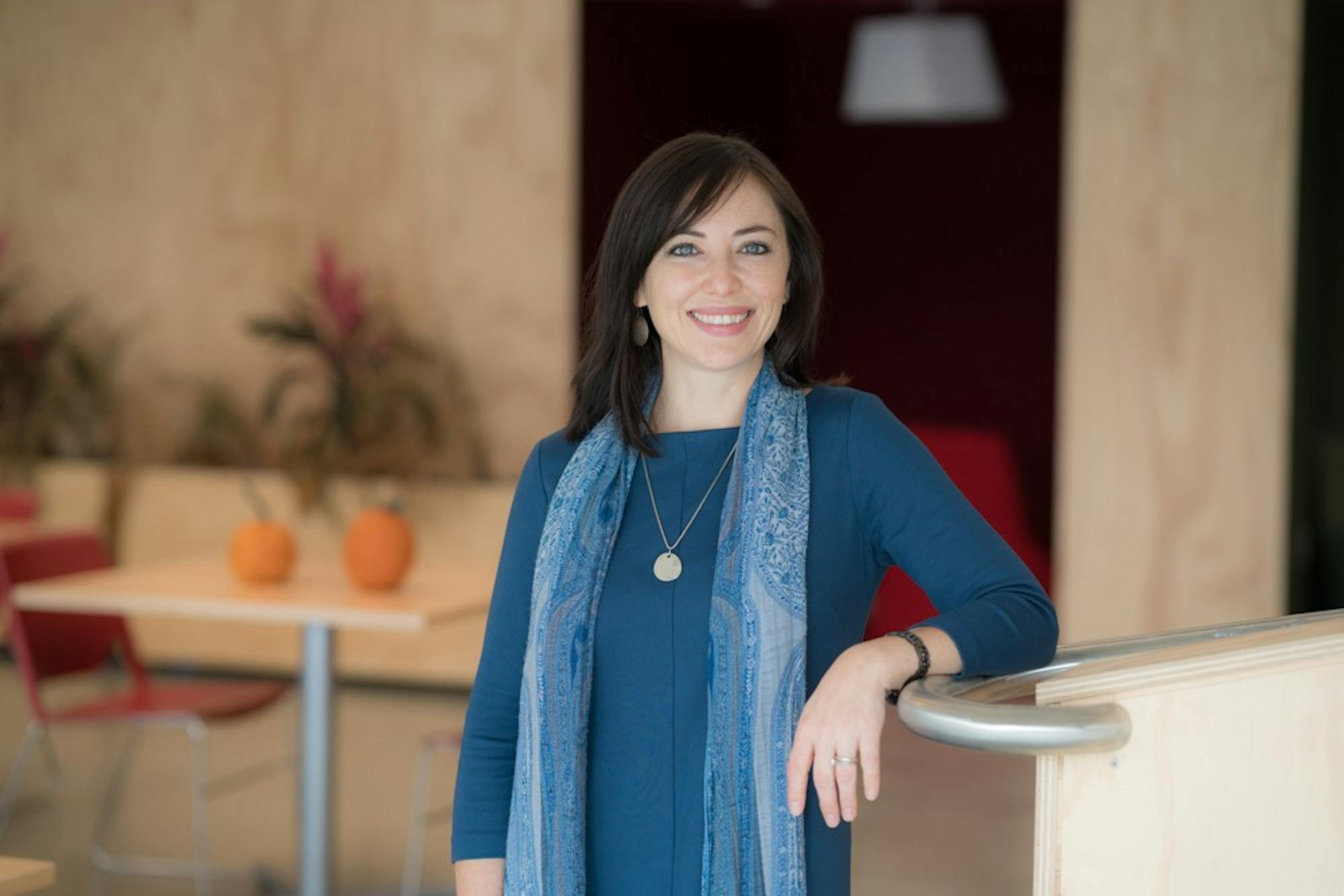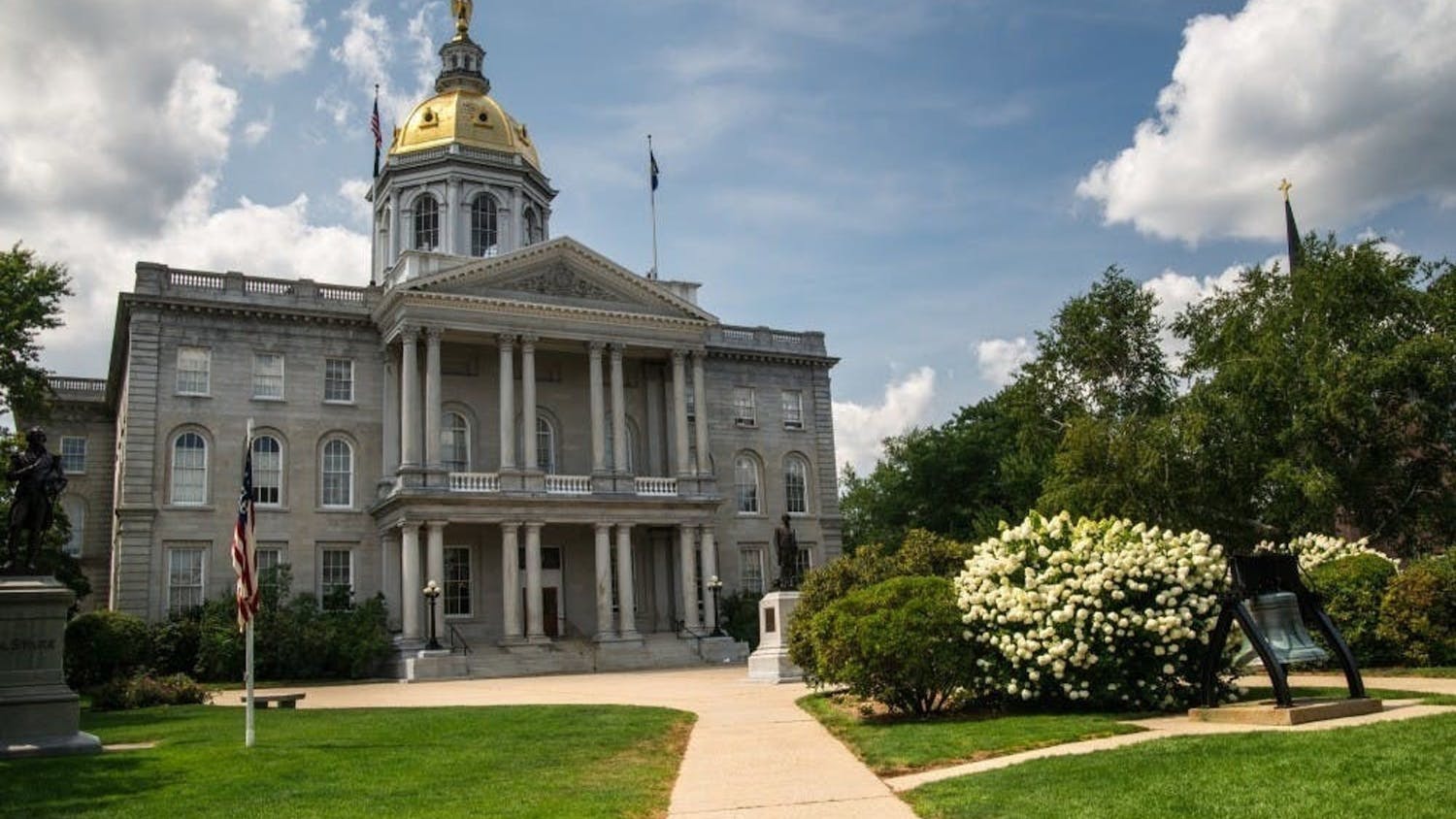Earlier this month, the College announced that Native American studies professor Melanie Benson Taylor will serve as the North Park House professor beginning in the winter term. She will replace Dean of the College Rebecca Biron, who in turn replaced biology professor Ryan Calsbeek after he stepped down from the position earlier this term. Taylor, who serves as chair of her department, specializes in Native American literature and will teach a course on the subject this spring. She earned her doctorate and masters degree from Boston University and completed her bachelor’s degree at Smith College. Together with her husband Alan Taylor, who serves as a lecturer in writing, and their two-year old son, she will move into a home on North Park street next month to be closer to her students.
What inspired you to take on this role as the North Park House professor?
MT: I think what really attracted me was the idea that there was this great opportunity in the social and the intellectual life at Dartmouth to do something that was really organic and I think driven not in a top-down fashion. I think there’s potential for students to really dictate and engineer what a really cohesive, inclusive campus community could look like. So I really got excited about being able to participate in that and to find ways to really just be an instigator for bringing together not just students but faculty and staff around issues that we’re all interested in and that we care about.
What would you say then that you hope to accomplish as House professor? What are your thoughts on the role House professors should be playing in residential life?
MT: What I hope to accomplish would be creating a space where students feel comfortable and excited to come together and talk about what’s happening in their classrooms and in the campus community, and of course right now in the nation and around the globe. I think college campuses are such unique environments where there’s really this microcosm of backgrounds and regions and demographics. It kind of looks like the House professors are sort of at the top of this hierarchy in some ways on this new residential organizational chart. But in truth, I think the House professor should really just be one member among many in a community. And I’m really thinking of it as just a different way of organizing community at Dartmouth. So I would see myself stepping in to the role of being a host, really. Opening up our home to students and faculty and staff to come together, watch debates and things. I’m already thinking ahead to the next presidential season.
How has your own residential life background from college helped shape some of these goals and visions?
MT: I went to Smith College, which is a private women’s college in western Massachusetts, which on the surface of things is very different from Dartmouth. But at the same time, it shares a lot of the same feature. It’s a small, liberal arts institution in a relatively quiet, rural environment. So there, the residential life is really structured around a housing system. And there was no Greek system, of course, to compete with there, so the housing system was the very center, the nexus of social and intellectual life. And that, for me, was an just amazing experience. It meant a really coherent environment to think, to do work and to build friendships and relationships. One of my favorite professors from Smith actually just came to visit me at Dartmouth and have lunch s couple weeks ago. These are relationships that have been ongoing, and they were really cemented in that kind of an atmosphere.
So I think one of the things that’s central to Dartmouth social life right now is the Greek system. How do you think the two institutions — the new housing system and Greek life — are going to coexist at Dartmouth?
MT: I see them not as competing but really as being complementary. I think they can offer different kinds of enrichment and avenues for creating relationships and networking and really building community. And again, what that will look like in the housing system I think will vary depending on the year and the house community and the individuals that are involved in building that. So I assume it’s the same in Greek system as well — you know, the houses and each group really changes according to who’s involved in creating the fabric of that community. I really just think that what the housing system is doing is it’s providing more spaces.
Obviously it’s still early, but where do you envision the House system moving in the next few years? What changes do you anticipate might occur?
MT: That’s another really good question, and I think one that probably no one can and should answer right now, because I think it should be driven entirely by the experimentation of these first terms and years.
As you know, there’s been a lot of dialogue both at Dartmouth and nationally about the idea of safe spaces in the recent months and years. What are your thoughts on this concept and how it might tie in to residential life, or your role as House professor?
MT: I think that is an essential piece of any community. Despite Dartmouth’s apparent small, intimate size, it can be a very big, intimidating place, particularly for students from underrepresented backgrounds, but really any student could find being in such a large, diverse community a little destabilizing. I think it’s so important particularly on college campuses to be providing those kinds of safe, welcoming, nurturing kinds of spaces for growth and development to happen. I’m deliberately using very vague, neutral language because I think this doesn’t simply apply to traditionally vulnerable groups. That, of course, is of primary importance, but I operate under assumption that really anyone can be in need of a safe space at some point or another. It should be and is sometimes an alienating and unsettling experience to move through the process of growing and adapting and having your beliefs challenged. And sometimes it can be a hurtful process for those who find themselves questioning their place in the world or their value or their identity. So as much as we can embolden and empower students to feel strong in their quest to navigate those challenges, I think we’ll have done a service.
This interview has been edited and condensed for length and clarity.




